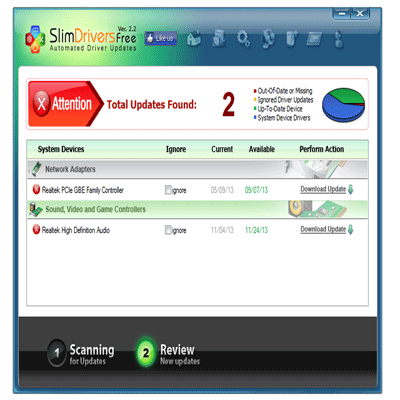Accessibility features are created to support those who are not capable to handle technology, so they can make the most of it because they are handicapped. They are made so they can utilize them easily and work with their help of them like everyone. Like a text-to-speech feature that will read text loudly for those who can’t see like the rest, a speech-recognition feature helps users with little adaptability to handle PC with the help of their voice. Here we will tell introduce you to a few most practical accessibility features. We’ll also explain the assistive technology that you can attach to your system for better receptiveness.
General Accessibility Features:
There are some features of accessibility that need the installation of special software. Many of them are assembled within the operating system of your system or in the user’s mobile phone.
Following are a few kinds of accessibility features that you may have on your device.
- For blind or low-vision PC users: Features including text-to-speech permit its users to hear what they can see on the screen and there is no need to worry about reading it. There are also other characteristics, including the maximum disparity between themes and extended cursors, all of these above traits help those users who have limited sight and are now able to see the screen easily.
- Features for stone deaf or hard of hearing system users: It supports sending information in form of a voice message to deaf users through visual aids. Mono audio systems transmit right and left audio signals via both earbuds so users who are hard of hearing will not miss a single section of what they are listening.
- Features for restricted-mobility PC users: Keyboard shortcuts are convenient for many users, but they are supporting those who are unable to move the equipment of their system physically like a mouse. For people who find it difficult to click several keys while working, sticky keys permit them to press keys one at a time to activate a shortcut for their convenience.
Usage of Accessibility Features:
There are many PCs and mobile phone devices that have built-in accessibility features; they are required to be switched on before you can utilize them. Here’s how you can locate these features for your device.
- In the first step, you will open the Settings app in windows (or Control Panel in Windows 8 and earlier), and tap Ease of Access.
- Then in OS X, you can open System Preferences, and tap Accessibility (or Universal Access in older versions).
- For mobile devices that have Android or iOS, you can open the Settings app and locate the Accessibility segment. On iOS devices, you’ll find it within the group of General settings.
Accessibility to the Web:
There are many web browsers that provide their own built-in accessibility features. Users will most probably find these options in their browser’s settings.
Before going towards these settings, you have to try to zoom in. Zooming is a simple method to make web pages clearer and visible so users can read them easily. It also works according to the same pattern in most browsers. If you’re utilizing a browser in Windows, you can zoom in or out by clicking Ctrl+ or Ctrl- (hold down the Ctrl key and tap the + or – key). In case users are using a Mac, then tap Command+ or Command-.
Any user wants to go back to the default zoom level. Then just tap Ctrl+0 (hold down the Ctrl key and click the zero key). At times you’re using a Mac then you can tap Command+0.
Features of Accessibility in Particular Software:
Except for the above-mentioned features, there are many other accessibility users can utilize. As it is based on the model of PC you have and the software you use currently. Below are some resources that will lead you to access features for some of the most often-used apps.
- Microsoft Accessibility: Users will find information on Microsoft’s accessibility projects, except that they would be able to support pages on accessibility features in the Windows operating system as well as for the Microsoft Office suite.
- Apple Accessibility: From it, you can site for accessibility features on iPods, iPads, Macs, and iPhones of Apple. Users can also plan to support documents for certain features.
- Google Accessibility: Google’s help site for accessibility features for Tablets, Android phones Chrome.
- Accessibility Features in Firefox: Mozilla’s official site so users can approach Firefox’s accessibility features.
AppleVis: It is a community-based website that offers tutorials, and tips, and gives feedback on products for those who are unable to see and have a low vision of Apple products.
What are Assistive Technology Devices?
As we all already know that software can make technology more obtainable for handicapped users. There are some accessibility features that need extra hardware, or assistive technology to work. Many assistive-technology devices have the same functions including keyboards and speakers. They are called peripherals that can be plugged into the main computer.
Following are some everyday life usage and familiar kinds of assistive technology:
Screen Magnifiers: Users can place Screen magnifiers over their system’s monitor to make sure that the content on the screen always pops up in large form. Many people use this feature on their operating systems to easily see the data written on it. Except that external magnifiers are also available.
Alternative Keyboards: Users who have difficulty utilizing standard keyboards. There are a variety of options. Like, they can buy keyboards with larger keys that are easier for them to see and tap. They can also purchase keyboards with alternative key arrangements. Like sequences for people who can only write with one hand or with the help of a few fingers.
Switch-adapted Peripherals: They permit users who are limited access because of some physical deficiency. And who are unable to manage technology, such as a puff of breath or a head movement. Switch-adapted mice and keyboards make it possible for handicapped people to communicate with PCs. In case they are not able to operate peripherals with the help of their hands.
Where Users can Buy Assistive Technology Devices:
Following are someplace from where you can easily purchase Assistive Technology Devices:
- Ablenet: Computer Access: From here users can buy a huge variety of assistive technology devices. You will also find information on what types of devices are helpful for certain disabilities.
- Compusult: Computer Access for Physical Disabilities: Compusult gives assistive and other kinds of technology to public and in the field of businesses. It also gives training courses to people on assistive technology who have an interest in it.
Inclusive Technology: Users will find assistive-technology products and educational software designed for K-12 students with infirmities.
Some other Resources:
- Alliance for Access to Computing Careers: It gives information on accommodations and approach design that can be helpful for teachers and pupils in the branch of technology.
- My Web My Way: This site was made by the BBC. You can find a comprehensive guideline on how to change a variety of settings to make your system more users friendly and easier to use.
- National Center for Learning Disabilities: Users would be able to find helpful information on assistive technology, disabilities, and better accommodations for work as well as school.
Tech-Ease 4 All: It has resources for instructors and parents who want to utilize technology and computers with handicapped pupils.
Accessibility features are very helpful for everyday use, especially for those who are disable. It helps them to learn in an easy and proper way so they can make their lives better by utilizing them.











